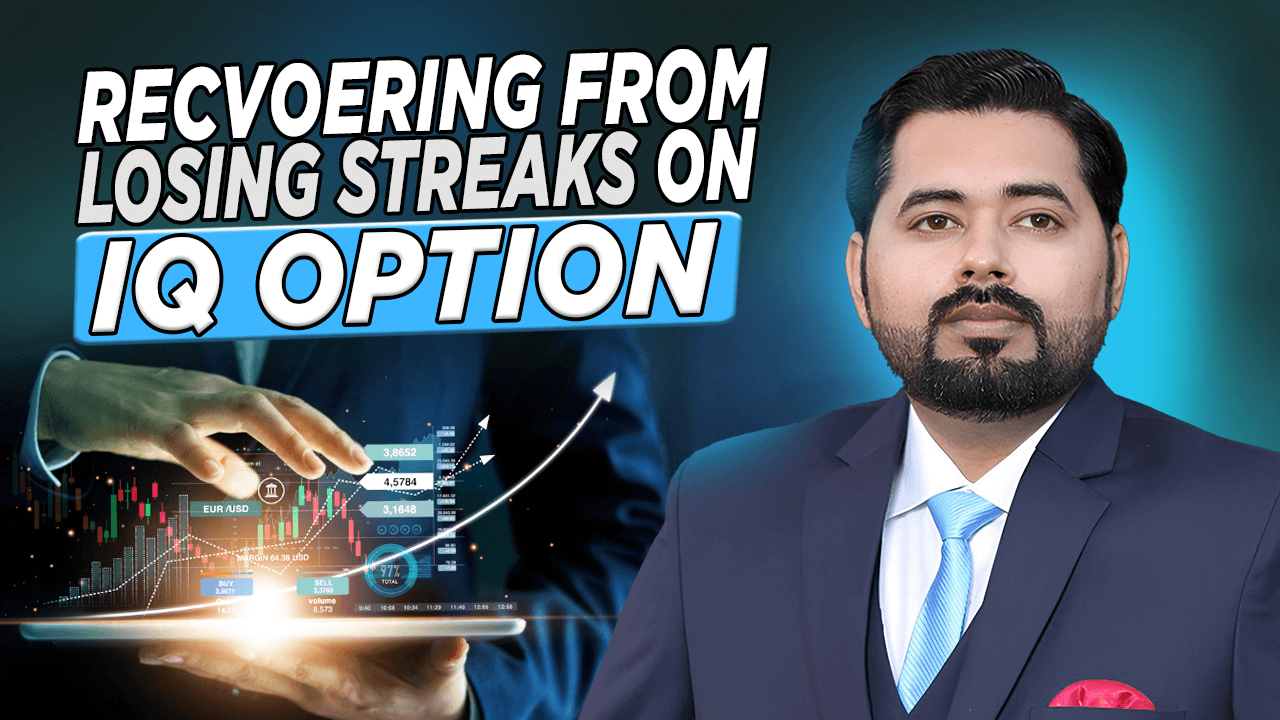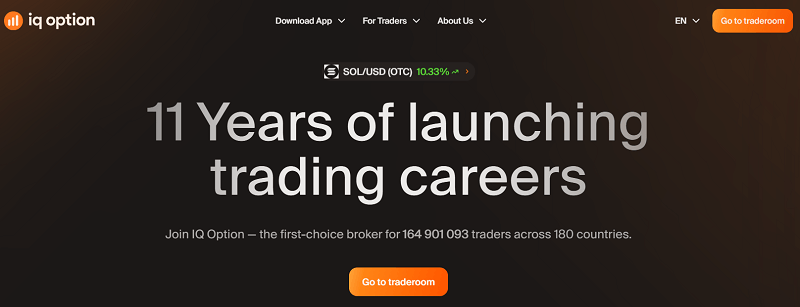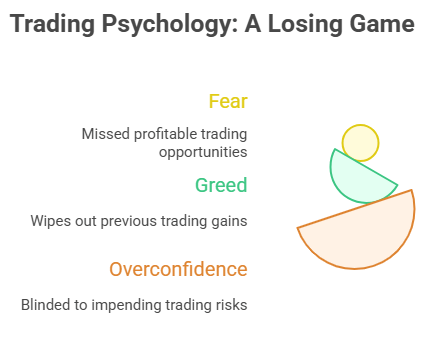The Psychology of Losing Trades on IQ Option & How I Recovered

Every trader starts with dreams of quick wins and fast profits. I was no different when I first opened my IQ Option account. But my real lessons didn’t come from my winning trades; they came from my losses. Those red screens, the sinking feeling after a miscalculated entry, and the frustration of seeing my account balance shrink — that’s where trading psychology truly came alive for me.

This article is not about glorifying my wins. Instead, it’s about what really happened when I faced loss after loss, how my emotions almost sabotaged my trading journey, and how I slowly built a mindset strong enough to recover. If you’ve ever blown an account, doubled down in frustration, or felt paralysed before clicking “Buy” or “Sell,” this story is for you.
👉 Don’t treat IQ Option as luck-based trading. With the right mindset, it can become a structured journey. Start your own disciplined approach today with IQ Option.
Why Losing Trades Hurt More Than Winning Trades Feel Good
The human brain is wired to dislike losses more intensely than it enjoys gains. Behavioural economists call this loss aversion. For me, a $50 win felt nice — but a $50 loss? It felt crushing, almost personal.
Psychologists like Daniel Kahneman have proven that the emotional impact of losing is almost twice as strong as the joy of winning. That’s why traders often make irrational decisions after losses — chasing, over-leveraging, or abandoning their strategies altogether.
When I first started, I didn’t realise how much this natural bias was shaping my behaviour. I wasn’t just trading against the markets; I was trading against my own brain. I faced addiction signs after multiple losses.
My First Major Loss on IQ Option
I remember it vividly. It was a EUR/USD trade on a 1-minute chart. I had already won two quick trades in a row, and I felt invincible. Instead of sticking to my rules, I increased my lot size dramatically. The market reversed, and within a minute, I lost almost half of what I had made that week.
What happened next was worse than the loss itself. My emotions took over. I re-entered the market immediately — the classic “revenge trade.” I didn’t analyse, I didn’t wait. I just wanted my money back. And of course, I lost again. By the end of that session, my account was down nearly 40%.
That was the night I realised that trading wasn’t about charts and indicators alone. It was about psychology. Don’t let it become a game of chance.
The Psychological Stages of a Losing Trade
When a trade goes wrong, most traders experience something like the five stages of grief:
- Denial – “The market will turn back; I just need to wait.”
- Anger – “This broker is manipulating prices!”
- Bargaining – “I’ll add another position and average out.”
- Depression – “Why do I even trade? I’m not cut out for this.”
- Acceptance – “Okay, I lost. What’s next?”
- Learn to identify emotional trading triggers.
I cycled through these stages so many times that they became predictable. But recognising them was the first step to breaking free.
Fear, Greed, and Overconfidence: My Biggest Enemies
I realised that my trading psychology revolved around three emotions:
- Fear: Stopping myself from entering a good setup because I was still haunted by my last loss.
- Greed: Doubling my positions after a win, assuming the market “owed me more.”
- Overconfidence: Believing I had cracked the code after a short winning streak.
- See why I abandoned the Martingale method.
These emotions weren’t just feelings; they translated into real money lost. Fear led to missed opportunities. Greed wiped out gains. Overconfidence blinded me to risks.

How I Started Recovering: Building a Trading Journal
The turning point came when I forced myself to write everything down. I began keeping a trading journal where I noted:
- The setup I was trading.
- My entry and exit points.
- My emotions at the time.
- The result and what I could have done better.
At first, it felt tedious. But over weeks, I started to see patterns. Most of my losing trades had less to do with bad strategies and more to do with impulsive decisions. My journal became a mirror — it showed me the trader I really was, not the trader I imagined myself to be.
👉 Don’t just rely on memory. Keep a trading journal while using IQ Option to track your mindset as much as your trades. Sign up and start your journey with IQ Option.
Risk Management Saved Me
No recovery is possible without risk management. I set a rule: never risk more than 2% of my account on a single trade. That meant if I had $1,000, my maximum loss per trade would be $20.
At first, it felt small. But as I applied it, something powerful happened: my stress levels dropped. Losing $20 didn’t crush me the way losing $200 used to. And when I was calmer, I made better decisions.
If you’re doubting the broker’s trust, here’s my full legitimacy test.
The Role of Patience: Learning to Wait
One of the hardest parts of recovery was learning to wait. Before, I thought more trades meant more profits. Now, I realised that fewer, higher-quality trades brought better results.
On IQ Option, the temptation to trade every candle is huge. But I began setting strict rules: only trade when at least two conditions of my strategy lined up. Sometimes I would sit for an hour without taking a single trade — but when I did, my win rate improved dramatically.
Cognitive Biases That Sabotaged Me
The more I studied psychology, the more I realised that I was falling prey to biases beyond emotions.
- Confirmation bias: Only looking at signals that supported my gut feeling.
- Recency bias: Believing the last win or loss predicted the next outcome.
- Gambler’s fallacy: Thinking “I’m due for a win” after a losing streak.
Understanding these mental traps didn’t eliminate them, but it gave me the awareness to step back before acting on them.
Slowly Building Confidence Again
Recovery wasn’t instant. There were still days I slipped into old habits. But little by little, I regained control. My account didn’t skyrocket overnight, but it stopped bleeding. I went from losing 40% in a week to gaining 5–7% consistently over a month.
Confidence returned not from avoiding losses completely, but from knowing I could handle them without spiralling.
Practical Lessons I Learned
From this entire journey, here are the most important lessons that stuck with me:
- Losses are inevitable; how you respond matters more.
- Trading psychology is as important as technical strategy.
- Keeping a journal reveals truths you won’t admit to yourself.
- Risk management turns losses into small setbacks, not disasters.
- Patience is a strategy in itself.
Conclusion: Losing Was the Best Teacher
Looking back, my biggest breakthroughs as a trader came not from my winning streaks but from my losing ones. Those tough moments forced me to confront my psychology, discipline, and resilience.
Today, when I log into IQ Option, I don’t chase trades or fear losses. I treat every position as one part of a long journey. And when I lose, I don’t spiral anymore. I record, reflect, and reset.
👉 Don’t let one bad session define your trading journey. Learn, adapt, and recover with discipline. Join IQ Option today and build your trading mindset.